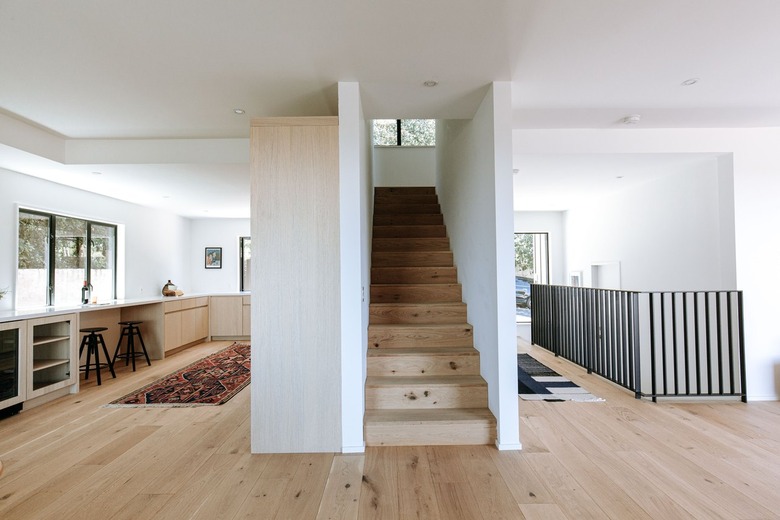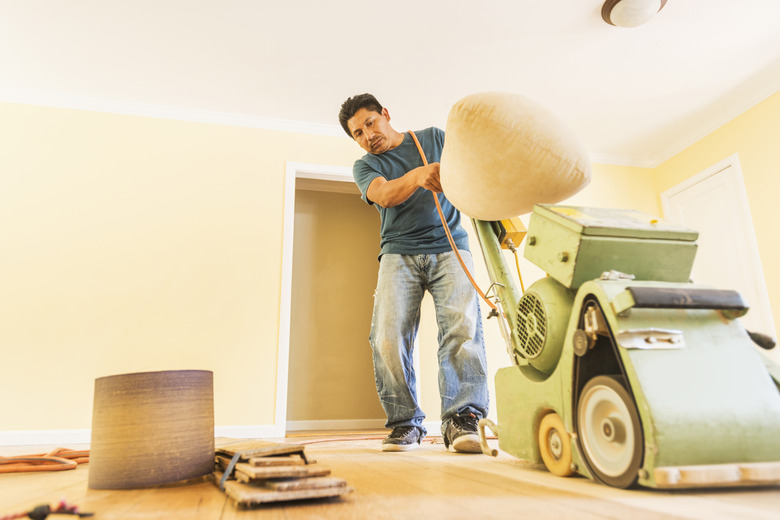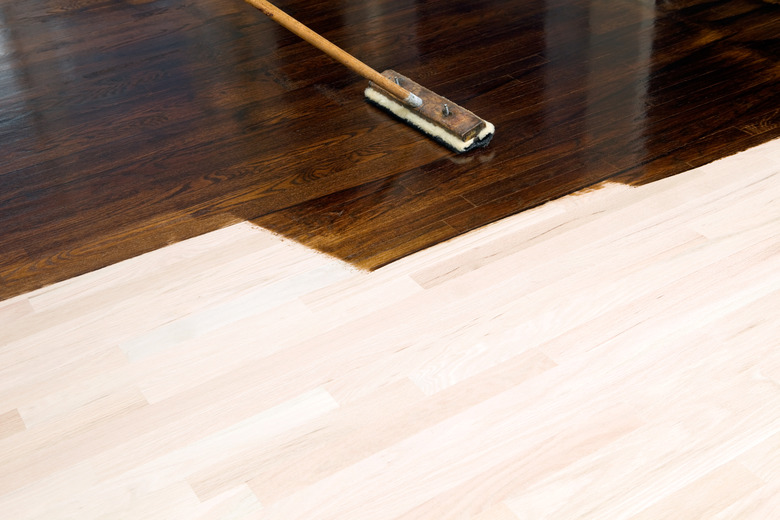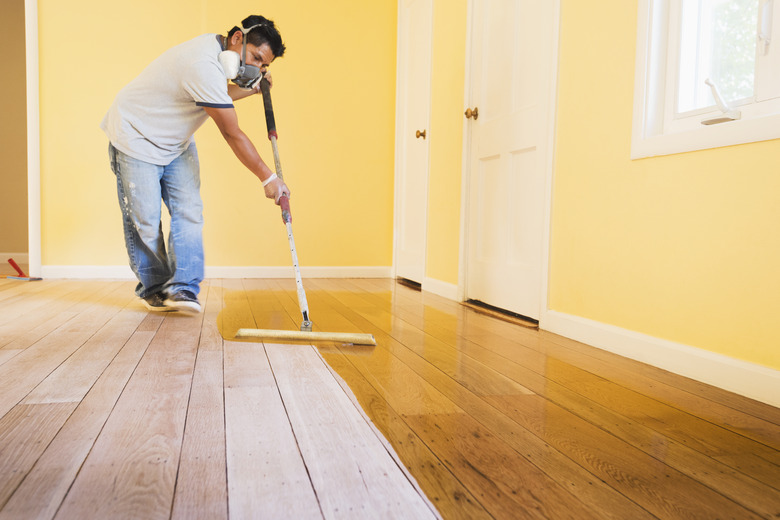How Much Does It Cost To Refinish Hardwood Floors?
One of the main benefits of solid hardwood flooring is that dull looking and even damaged floors can be rejuvenated by the hardwood floor refinishing. And because solid hardwood is about three-quarters of an inch thick, refinishing can occur several times over the life of the floor, which can last for decades.
Not only can the flooring be cleaned up to look like new, the color of the floor can be changed in some cases. When changing the color is the primary goal, then this step fits within the overall floor refinishing process.
Tip
Hardwood floor refinishing typically costs from $4 to $6 per square foot, but costs can be higher if boards need to be replaced or other repairs are needed.
Screening or Buffing Hardwood Floors
Screening or Buffing Hardwood Floors
Many people believe that refinishing hardwood always involves sanding down to the bare wood. It doesn't. Hardwood flooring is protected by a clear coating that can lose its luster over time. Polyurethane finish is the most common floor coating. To revive the finish, a flooring contractor, or you, can screen the floor, which involves roughing up the surface of the finish without penetrating down to the wood. The finish needs to be screened so that a new coat of polyurethane finish can bond to the old.
The process is sometimes called buff and recoat because a floor buffer rather than a floor sander is used in the screening process. The flooring professional will attach the screen to the bottom of the buffer and then systematically move it over the hardwood floor.
The flooring contractor then vacuums up the dust and then applies a coat of polyurethane finish. The cost is about $1 to $2 per square foot for this level of refinishing. Screening is not a level of refinishing that works if your goal is restaining to create a new floor color. For that, you'll need to refinish your hardwood floors.
Warning
Screening only works on floors that are coated with polyurethane. Floors with wax finishes cannot be screened. If you are unsure about the finish on your floor, speak to a professional flooring contractor.
Hardwood Floor Refinishing
Hardwood Floor Refinishing
This is the process most people envision when someone mentions refinishing or staining a floor. In this process, the contractor uses a drum sander to remove the finish and sand down to bare wood. The technique removes the old finish as well as light scratches and minor imperfections in the wood itself.
The contractor starts by using a very coarse-grit sandpaper on the machine. He will follow up with at least two more passes using finer sandpaper grits with each pass. The coarser grits remove the finish and top layer of wood; the finer grits remove the sanding marks left by the coarser grits. A special handheld edger tool sands areas where the large sander cannot reach.
Once the sanding is complete and the room vacuumed, the contractor can either apply a stain to the floor and then apply a clear polyurethane protective coating, or apply a clear polyurethane coating without staining. The choice to change the look of the wood with a stain is a matter of personal preference. But be aware that some species of wood do not accept stain as well as others. Dense-grained woods like maple or birch do not accept stain well and may be best treated with just a surface finish. Coarser grained woods, such as oak, can be very well suited for staining. It's best to discuss your options with a flooring expert.
A good contractor will use a vacuum system attached to his sander to remove as much dust as possible. He will also seal off the rooms he is working in with plastic sheets and tape, but be aware that some dust will probably migrate to other areas of the house.
Expect to pay about $4 to $6 per square foot for a full hardwood floor refinishing, including staining. But there are a number of things that can increase the cost of the project:
- Repairs. Floorboards that are buckled, cracked or missing must be repaired before the sanding process can begin.
- Room prep. The room will need to be cleared of all furniture and rugs, as well as anything hanging on the walls and window treatments. Some contractors will do this, but it is sometimes left to the homeowner. For sanding multiple rooms, renting a storage pod that is placed outside of the home to hold the furniture is an option.
The DIY Home Improvement Option
The DIY Home Improvement Option
Because most of the cost of a professional refinishing job goes to labor costs, doing the work yourself will net big savings. And floor refinishing equipment is a popular rental item.
Equipment such as floor buffers, floor sanders, and edgers are usually rented by the half day or full day. Here are some approximate costs:
- Buffing machine: $35 for four hours, $45 for a full day
- Drum sander: $45 for four hours, $70 for a full day
- Edger: $30 for four hours, $45 for a full day
If you are unfamiliar with the equipment, ask the rental agent to demonstrate how it is used. Drum sanders can damage the old flooring if not used properly. Drum sanders can weigh over 125 pounds and you may need help getting some of the equipment in and out of your car, and up to the rooms where you will be working.
You will also need to purchase screens and sandpaper for the machines. It is best to overestimate in this area because you can usually return what you don't use. You will also need to buy tarps, tapes, and plastic sheeting to seal off the area.
Good quality stains and finishes usually run $40 to $50 per gallon. Check the product's label, but a gallon of stain can usually cover from 400 to 500 square feet.



